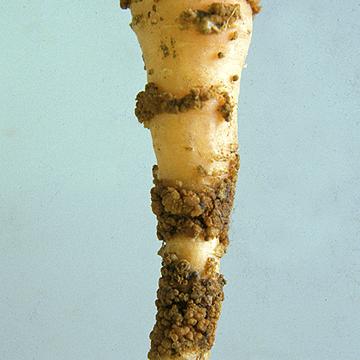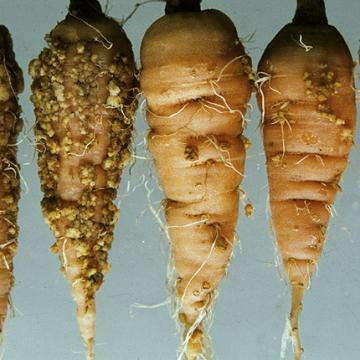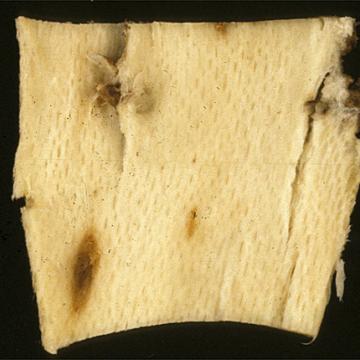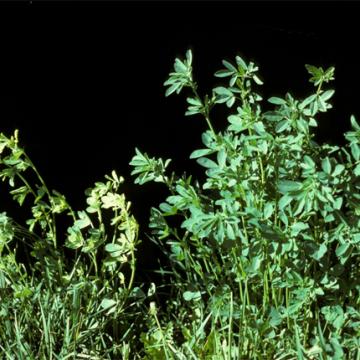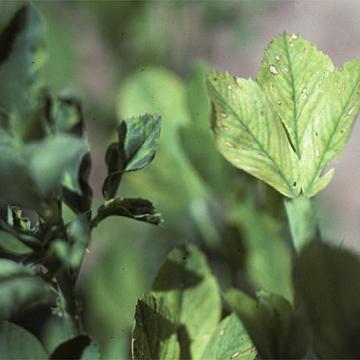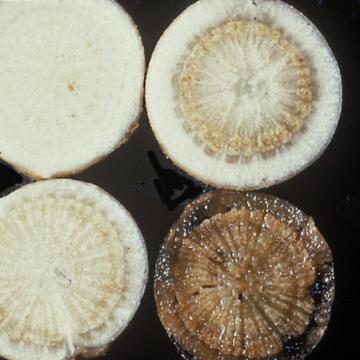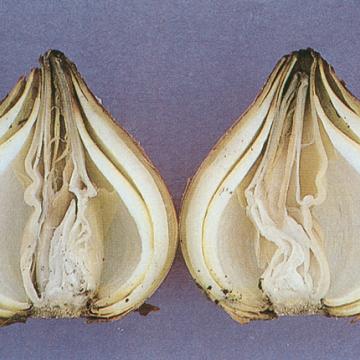DISEASE: Bacterial gall
HOST: Carrot
Root with many galls of different sizes.
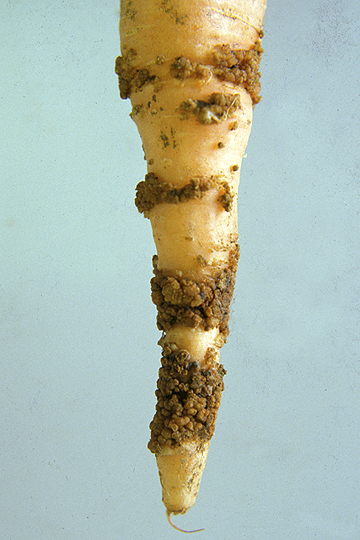
Bacterial gall | Carrot
DISEASE: Bacterial gall
HOST: Carrot (Daucus carota)
PATHOGEN: Rhizobacter dauci
SOURCE: H. Kuwata
DISEASE: Bacterial gall
HOST: Carrot
Galls caused from inoculation of injured roots (left two) and uninjured roots (center two). Uninjured, noninoculated root (right).
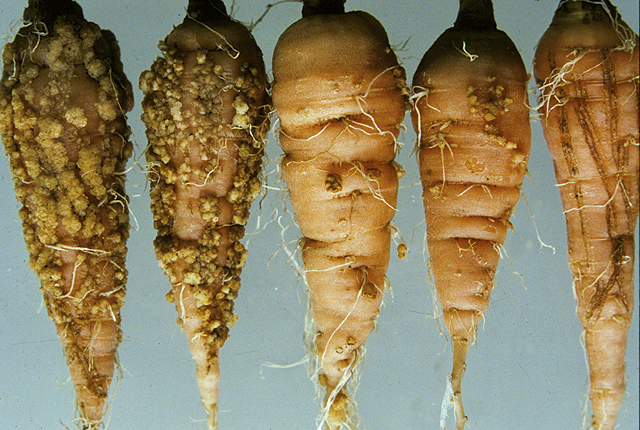
Bacterial gall | Carrot
DISEASE: Bacterial gall
HOST: Carrot (Daucus carota)
PATHOGEN: Rhizobacter dauci
SOURCE: M. Goto
DISEASE: Bacterial wilt
HOST: Alfalfa
Longitudinal section of defined brown gum pockets on inner surface of root bark.

Bacterial wilt | Alfalfa
DISEASE: Bacterial wilt
HOST: Alfalfa (Medicago sativa)
PATHOGEN: Clavibacter michiganensis subsp. insidiosus
SOURCE: S. Thomson
DISEASE: Bacterial wilt
HOST: Alfalfa
Infected plant (left) with typical symptoms of stunting and chlorosis. Other characteristic symptoms are spindly stems and small distorted leaflets. Healthy plant (right).

Bacterial wilt | Alfalfa
DISEASE: Bacterial wilt
HOST: Alfalfa (Medicago sativa)
PATHOGEN: Clavibacter michiganensis subsp. insidiosus
SOURCE: S. Thomson
DISEASE: Bacterial wilt
HOST: Alfalfa
Diseased plant with chlorotic leaves.

Bacterial wilt | Alfalfa
DISEASE: Bacterial wilt
HOST: Alfalfa (Medicago sativa)
PATHOGEN: Clavibacter michiganensis subsp. insidiosus
SOURCE: S. Thomson
DISEASE: Bacterial wilt
HOST: Alfalfa
Cross sections of diseased roots with defined brown gum pockets on inner surface of bark. Healthy root (upper left). Other sections represent increases in disease severity.

Bacterial wilt | Alfalfa
DISEASE: Bacterial wilt
HOST: Alfalfa (Medicago sativa)
PATHOGEN: Clavibacter michiganensis subsp. insidiosus
SOURCE: L. Claflin
DISEASE: Slippery skin
HOST: Onion
Rot progresses from the top of infected scales and eventually internal tissues rot. In early stages, the only external symptoms may be softening of the neck.
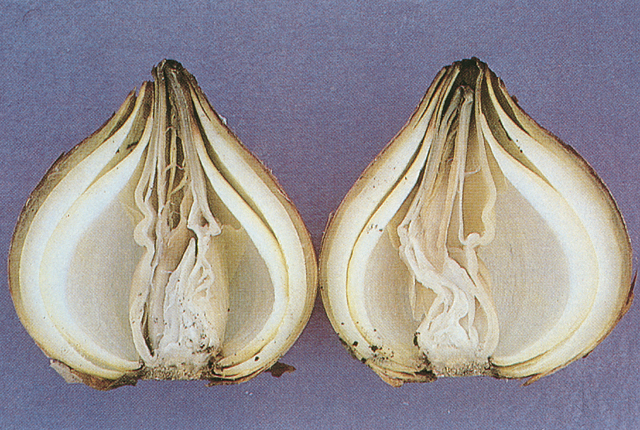
Slippery skin | Onion
DISEASE: Slippery skin
HOST: Onion (Allium cepa)
PATHOGEN: Burkholderia gladioli pv. alliicola
PATHOGEN SYNONYM: Pseudomonas gladioli pv. alliicola
SOURCE: H. Schwartz


